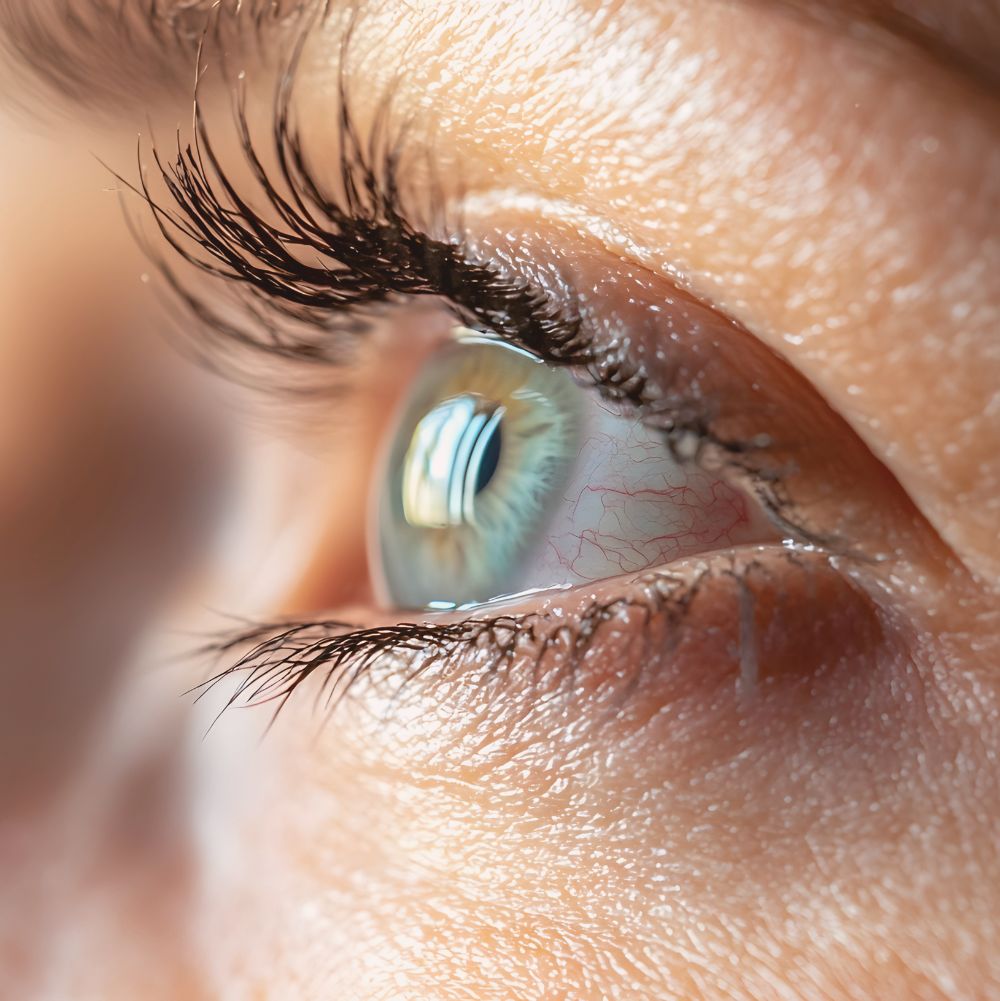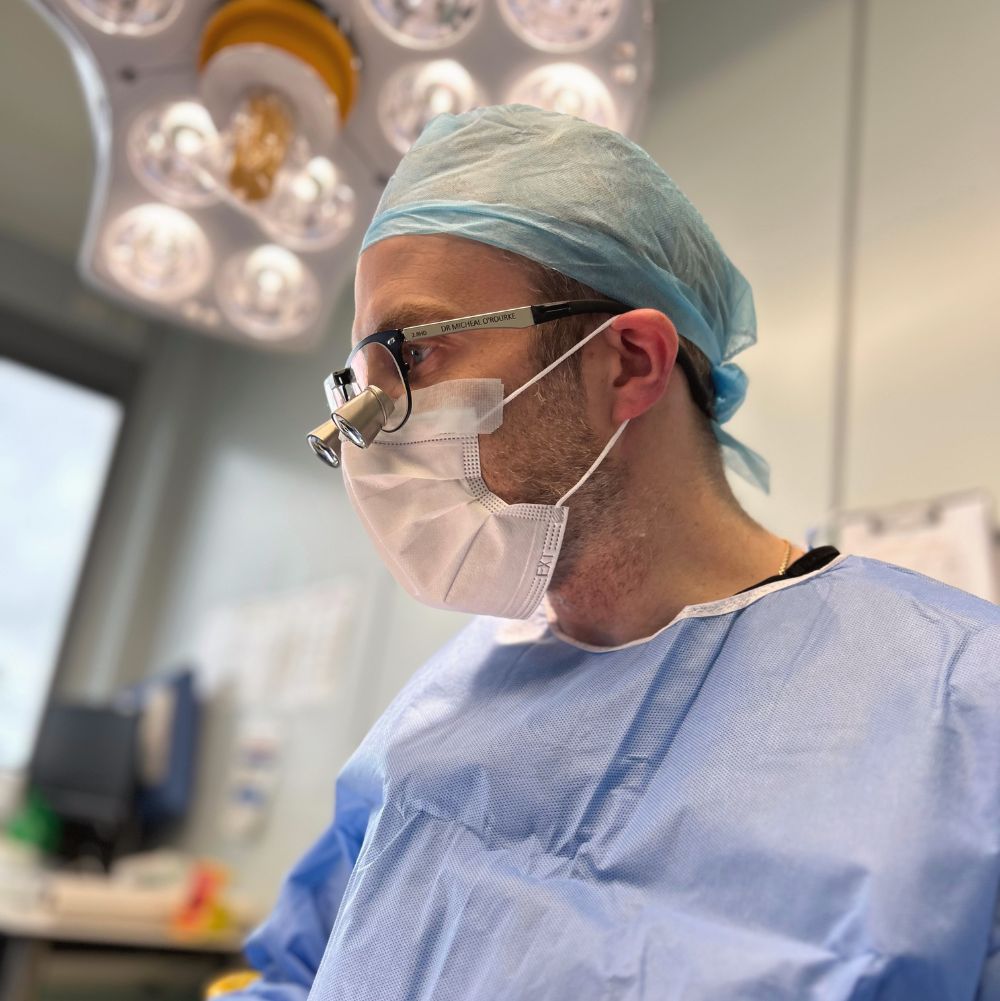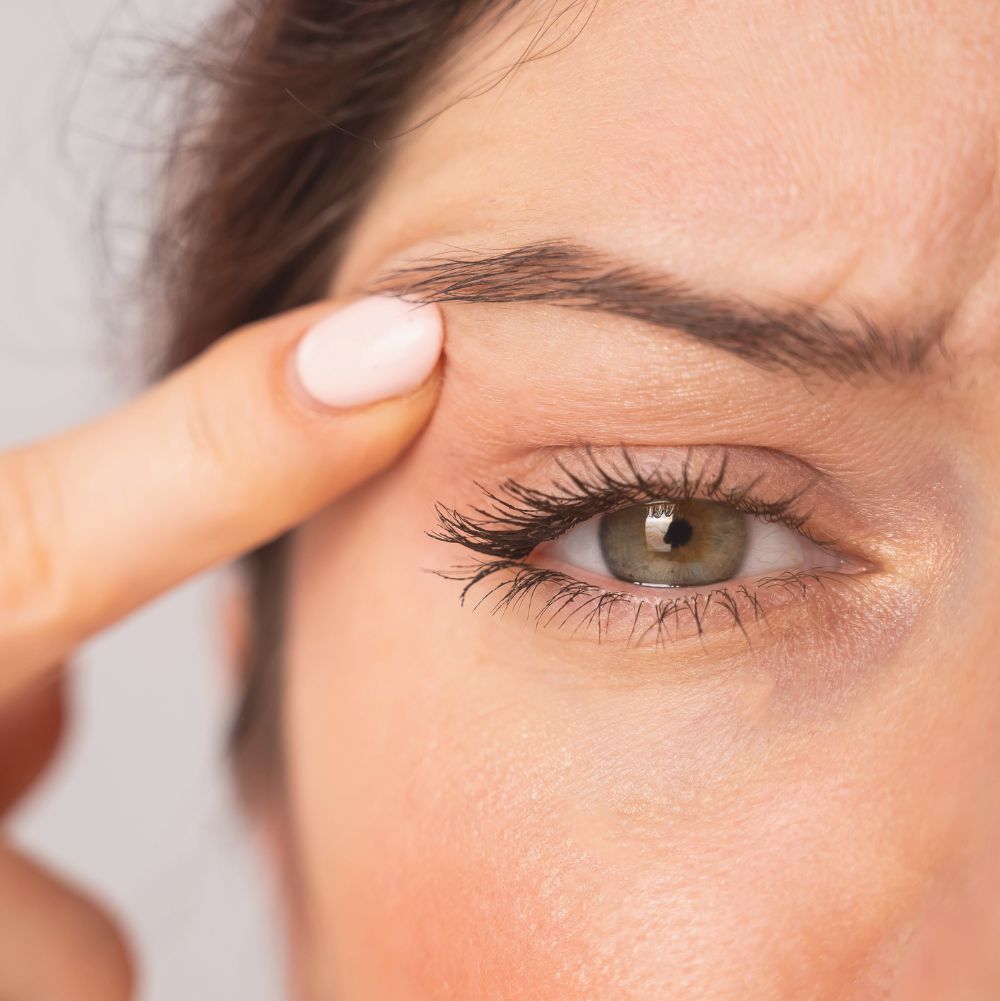Ptosis (Droopy Eyelid) Surgery, Dublin
Often referred to as upper eyelid levator repair, ptosis surgery corrects drooping of one or both eyelids to restore eyelid height, symmetry, vision, and facial appearance.
What Is Ptosis?
Ptosis is the medical term for a drooping upper eyelid, which can affect one (unilateral) or both (bilateral) eyes. In mild cases, it may be mostly cosmetic; in more advanced cases, the drooping eyelid can obstruct vision or cause eye fatigue.

Causes & Types of Ptosis
Ptosis can be congenital (present from birth) or acquired (develops later in life). Common causes include age-related weakening or stretching of the eyelid muscles (levator muscle dehiscence), previous eyelid surgery, trauma, or neurological or muscular disorders (e.g. myasthenia gravis).
Types of ptosis include:
- Aponeurotic ptosis – due to stretching or detachment of the levator tendon
- Neurogenic ptosis – from nerve supply issues
- Myogenic ptosis – muscle weakness
- Mechanical ptosis – caused by heavy masses or swelling pulling the eyelid down
Meet the Surgeon: Mr. Michéal O’Rourke
Mr. O’Rourke is a highly experienced Consultant Ophthalmic Surgeon with more than 15 years in practice. His area of expertise is Oculoplastic surgery, having refined his skills through extensive international training with world leaders in the specialty.
As a surgeon with dual training, he brings together the delicate precision of micro-surgical techniques with the aesthetic and reconstructive focus of plastic surgery. This combination allows him to achieve natural-looking results while preserving the essential function of the eyelids.
Key achievements and qualifications include:
- PhD in Ocular Immunology
- Fellowship of the Royal College of Surgeons in Ireland (FRCSI (Ophth))
- Fellowship of the European Board of Ophthalmology (FEBO)
- Advanced subspecialty fellowships in Manchester, Melbourne, and The Royal Children’s Hospital, Australia
- Strong commitment to patient education, support, and advocacy

How Ptosis Surgery Works
Ptosis surgery is performed by an oculoplastic or ophthalmic surgeon. Depending on the underlying muscle function, techniques may include:
- Levator advancement/resection: The surgeon tightens or reattaches the levator muscle to raise the eyelid.
- Frontalis sling surgery: For cases with poor levator function, the eyelid is linked to the forehead muscle so raising the brow helps lift the lid.
- Internal (conjunctival) approach: The surgery may be done via the inside of the eyelid with no external skin incision, depending on case specifics.
The procedure is often done under local anaesthetic with sedation, occasionally under general anaesthesia depending on complexity.
Who Needs Ptosis Correction?
You might consider surgery if:
- The drooping eyelid covers part of your pupil and affects vision
- You tilt your head back or raise your brows constantly to see better
- You experience eye fatigue, forehead strain, or brow discomfort
- You want improved eyelid symmetry or aesthetic appearance

What to Expect / Recovery Timeline
- Procedure time: 30–90 minutes (varies by complexity)
- Downtime: Mild swelling, bruising, or discomfort for several days
- Follow-up: Surgeon checks healing and eyelid position over weeks
- Full result: Final eyelid height and symmetry become clearer over weeks to months
- Patients are typically able to resume light day-to-day activities relatively soon
Frequently Asked Questions
Partial improvement is typically visible immediately, but the final eyelid position settles over weeks to months.
In some cases, mild recurrence can occur over years, and a touch-up may be considered.
Incisions are often placed in the natural eyelid crease to minimise visibility.
Local anaesthetic ensures comfort during the procedure; mild discomfort post-operatively is normal.
Yes, congenital ptosis is often addressed in childhood to avoid vision development issues, depending on individual evaluation.

